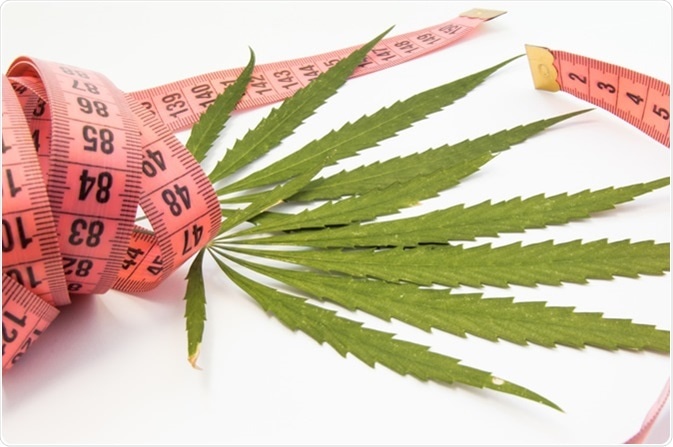A long, winding road
There is a terrible epidemic currently affecting the US and spreading to other countries. And, no, I am not talking about opioids. This is about obesity and related health conditions like high blood pressure, Type 2 diabetes, and insulin resistance.
According to data from the National Health and Nutrition Examination Survey (NHANES), in 2015-2016, the prevalence of obesity was 39.8% in US adults—and children and adolescents were not far behind at 18.5%. These rates have continued to rise over the past two decades.
Obesity is complex and affected by many different factors, both biological and environmental. Risk factors include genetics, medications taken that affect weight, increased intake of highly caloric food, exercise level, and sleep. However, obesity is also connected to education level, socioeconomic status, location, psychological conditions, and behavior. [1]
The multitude of factors involved in the etiology of obesity makes it that much harder to develop interventions that can help people manage their weight successfully over the long term—and why most of the effects of dieting are difficult to maintain. [2]
Interestingly enough, one approach toward ameliorating the opioid epidemic (cannabis) may also be effective for obesity. You are likely wondering how on earth cannabis could be linked to weight loss instead of weight gain. Rest assured, your many questions will be answered.
Despite the stereotype that cannabis causes the “munchies,” there is evidence that people who use cannabis actually have a lower body mass index than people who don’t use cannabis. [3] Additionally, those who use cannabis have lower levels of fasting insulin and insulin resistance; one study even found that they had a smaller waist circumference. [4]
If you’re still not on board, it’s OK—this is a convoluted issue. Because the truth is that cannabis has been proven to stimulate appetite as well (yes, there is some truth to that “munchies” stereotype). And that effect was strong enough to convince the US Food and Drug Administration to approve a synthetic tetrahydrocannabinol (THC)–based drug called Marinol to increase appetite in those with AIDS and those undergoing chemotherapy to help them gain weight. So what gives?
Well, cannabis is a complex plant that contains hundreds of chemicals. We often forget that ingesting whole cannabis means that any number of compounds can be interacting to produce a wide range of effects. For example, there is evidence that tetrahydrocannabivarin, or THCV, and CBD might contribute to weight loss and improvement of other metabolic factors. [5-6]
A recent study from researchers in Quebec looked at data from over 100,000 people to further explore this intricate relationship in depth. Based on the 2009-2016 NHANES survey, they found that obese people who used cannabis across their lifetime (even less than four times a month) had significantly lower levels of insulin and insulin resistance; however, this effect did not hold up for people who were not obese. [7]
While these results are pretty surprising, they actually line up quite well with pre-clinical findings. Another study found that weight gain was blocked by THC treatment in diet-induced obese mice—but not in lean mice. Associated effects in the gut microbiome were also blocked by treatment. Thus, the authors of this study concluded that THC might be exerting its effects on weight via the role of the endocannabinoid system in the gut. [8]
Clearly, there’s so much more that we need to learn. But, the promising news is that GW Pharma found the cannabis-obesity link interesting enough to study in a clinical trial. Perhaps one day soon you’ll be able to pick up the cannabinoid best aligned with your personalized factors in mind to optimally meet your needs. Until then, my head will stay buried in the research to look out for more updates.
[Image]References
- Hruby, A. & Hu, F.B. “The Epidemiology of Obesity: A Big Picture.” Pharmacoeconomics, vol.33, no.7, 2015, pp. 673-689. (impact factor: 3.338; cited by: 360)
- Lean, M.E.J., et al. “Making Progress On The Global Crisis of Obesity and Weight Management.” BMJ, vol.361, 2018, pp. 1-7. (impact factor: 27.604; cited by: 7)
- Alshaarawy, O. & Anthony, J.C. “Are Cannabis Users Less Likely To Gain Weight? Results From A National 3-year Prospective Study.” Int J Epidemiol, 2019, pp.1-6. (impact factor: 7.339; cited by: 4)
- Penner, E.A., et al. “The Impact of Marijuana Use on Glucose, Insulin, and Insulin Resistance among US Adults.” Am J Med, vol.126, no.7, 2013, pp. 583-589. (impact factor: 5.003; cited by: 83)
- Wargent, E.T., et al. “The Cannabinoid Δ9-tetrahydrocannabivarin (THCV) Ameliorates Insulin Sensitivity In Two Mouse Models of Obesity.” Nutr Diabetes, vol.3, no.5, 2013, pp. 1-10. (impact factor: 3.098; cited by: 36)
- Iffland, K. & Grotenhermen F. “An Update on Safety and Side Effects of Cannabidiol: A Review of Clinical Data and Relevant Animal Studies.” Cannabis Cannabinoid Res. vol.2, no.1, 2017, pp. 139-154. (impact factor: N/A; cited by: 67)
- Ngueta, G. & Ndjaboue, R. “Lifetime Marijuana Use in Relation to Insulin Resistance in Lean, Overweight, and Obese US Adults.” J Diabetes, 2019, pp. 1-10. (impact factor: 3.298; cited by: N/A)
- Cluny, N.L. et al. “Prevention of Diet-Induced Obesity Effects on Body Weight and Gut Microbiota in Mice Treated Chronically with Δ9-Tetrahydrocannabinol.” PLoS One, vol.10, no.12, 2015, pp. 1-12. (impact factor: 2.776; cited by: 24)








